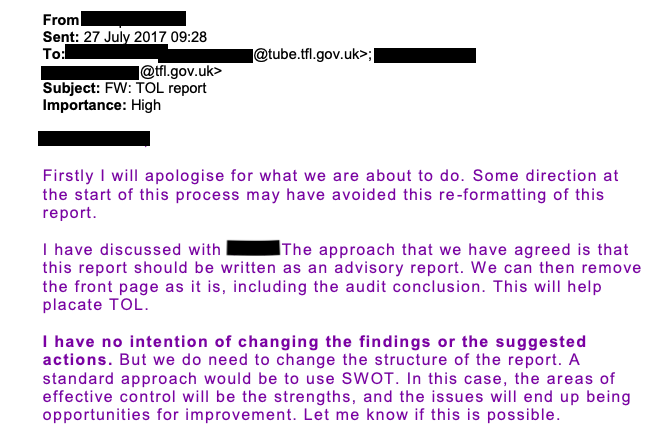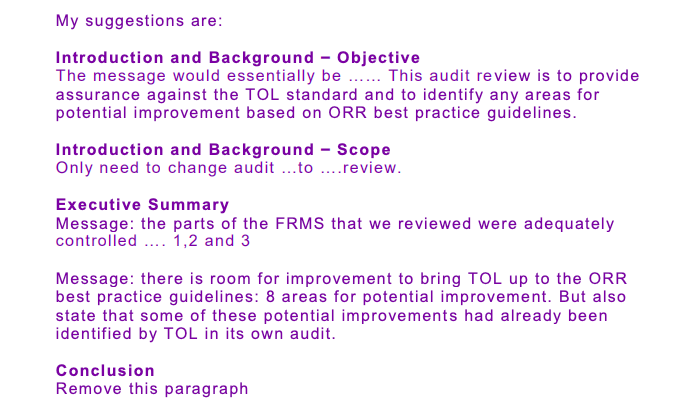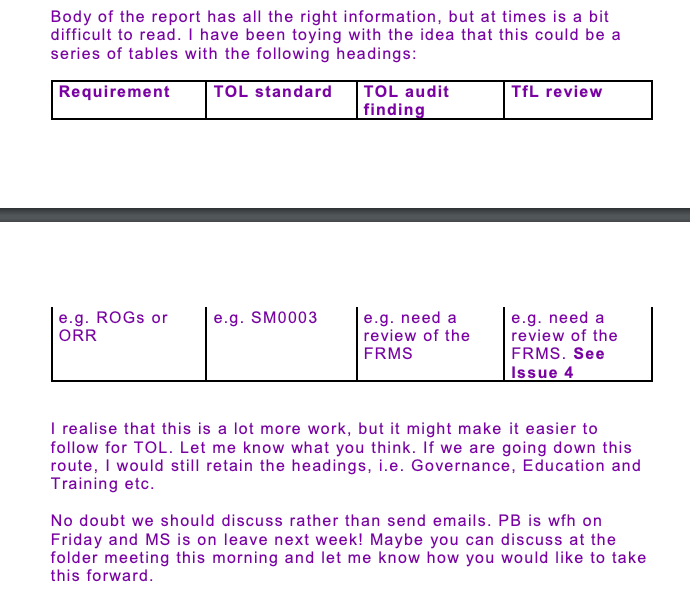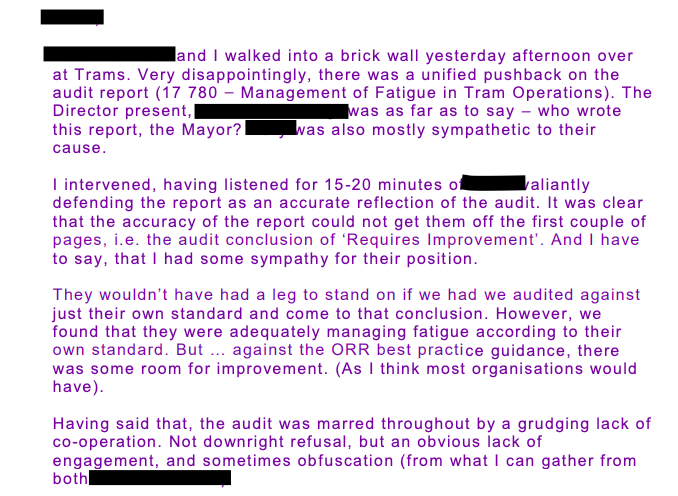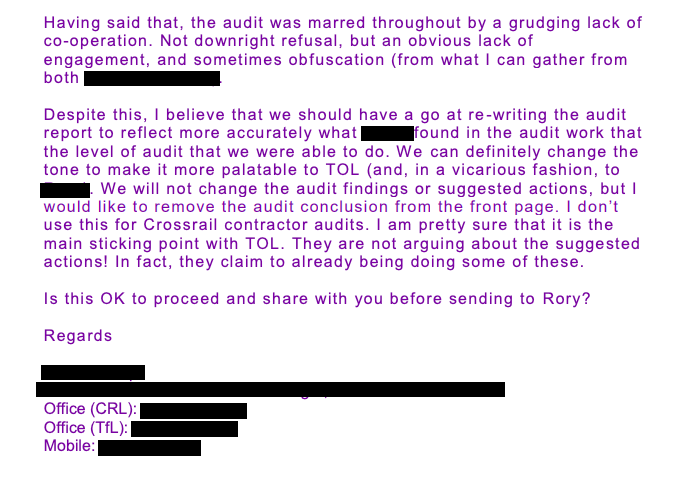Exclusive: TfL officials watered down Croydon tram safety audit to ‘placate’ First Group

Internal emails seen by City A.M. show that Transport for London (TfL) officials agreed to water down an audit into fatigue management on the Croydon tram network in a bid to “placate” the company running the service.
A group of TfL executives responsible for a 2017 audit of Tram Operations Limited’s (TOL) safety standards agreed that TfL could “definitely change the tone to make it more palatable to TOL” after the firm objected to their conclusions.
They agreed to do so despite complaining that TOL – a subsidiary of First Group – had shown a “grudging lack of cooperation” over the investigation, which was opened after a number of tram drivers were seen asleep at the controls.
The incidents happened just months after seven people were killed when a driver fell asleep, causing a tram to derail.
The watering down of the audit was reported last year by Buzzfeed, but new emails seen by City A.M. show the steps officials took to appease TOL.
According to the emails, the initial draft of the audit was met by a “brick wall”, with TOL presenting a “unified pushback” against its findings:
“Very disappointingly, there was a unified pushback on the audit report (17 780 – Management of Fatigue in Tram Operations). The director present went as far as to say – who wrote this report, the Mayor?”
The email went on: “Having said that, the audit was marred throughout by a grudging lack of cooperation. Not downright refusal, but an obvious lack of engagement, and sometimes obfuscation.”
Despite their complaints, TfL officials decided to “reformat” the audit as a “advisory report” and remove the headline conclusion, saying: “This will help placate TOL”.
The decision marked a considerable change of heart by officials, who several weeks earlier had been warned that their investigation could well meet with resistance from TOL.
At that time, a separate note showed that in the event of any pushback, senior TfL figures would take steps to “nip it in the bud” at once.
Despite the eventual changes, officials agreed that the “essential findings” of the report would not change.
Neil Garratt, Sutton councillor and candidate to be Croydon and Sutton’s London Assembly Member, told City A.M.: “When TfL audit the tram operator’s safety, people expect them to act as a watchdog guarding the travelling public. But weakening safety reports after a quiet word makes me wonder where TfL’s loyalties really lie. It’s becoming a pattern.
“The London Mayor is looking like a man with something to hide: why is he fobbing people off? He must agree to investigate and reverse this cover-up culture, so we can ride the Croydon Tram with confidence.”
A TfL spokesperson, said: “It is completely untrue to say the draft Fatigue Audit report was watered down. It is standard industry practice to discuss findings with those being audited ahead of finalising any report to ensure it is accurate.
Before the Open newsletter: Start your day with the City View podcast and key market data
“The evidence and recommendations of the report were unchanged. The final Fatigue Audit report is accurate and fully complies with industry guidelines.”
They added that the initial ‘requires improvement’ conclusion was not used on the final report because the audit was conducted against industry best practice rather than the contractual requirements.
The emails were released after persistent written questions to the Mayor by Assembly Member Caroline Pidgeon.
The incidents occurred less than six months after the Sandilands tram crash, in which seven people were killed after a tram derailed.
A report from the Rail Accident Investigation Branch (RAIB), released in December 2017, found that the most likely scenario was that the driver had a “microsleep” episode approaching the bend.
Last month City AM revealed that both TOL and TfL had been aware of a driver fatigue management problem on the network for two years when the crash occurred.
Auditors removed ‘requires improvement’ conclusion
The initial draft of the report, which was circulated in July 2017, concluded that TOL’s fatigue management process “requires improvement”, and identified a number of priority areas.
However, when the final report was released in March 2018, the headline conclusion had been removed, and a list of “Priority 1” issues toned down to “opportunities for improvement”.
TOL’s objections to the report stemmed from the fact that TfL chose to audit it against the Office of Road and Rail’s (ORR) as well as its own safety procedures.
Although the audit found they were “adequately managing fatigue” according to their own standard, there was “some room for improvement” against ORR’s best practice guidance.
But the terms of reference for the audit show that TfL had planned to use both sets of standards in conducting its investigation.
TOL executives also complained that they had received an initial verbal conclusion that fatigue management was “well controlled”, but that this was changed to “requires improvement” without any further discussion.
In 2019, however, deputy mayor for transport Heidi Alexander denied that any such verbal assurance had ever been given to TOL.
Even after the audit had been watered down, documents show that TOL never accepted its results and had refused to sign it off.
The 2017 audit has already been the subject of controversy in the past, after it emerged that the report was never sent to the independent body investigating the 2016 crash.
The transport operator said that the report had fallen “in a gap between people who thought it should have gone out.”
A spokesperson for TOL owner First Group said: “We cooperated fully with this audit process, as we have done with all reviews and inquiries, and will continue to do so.
“However, the final report did not take into account evidence we submitted about changes made to our processes, following our own earlier reviews.
“Our commitment to the safety of our passengers, our employees and others who engage with us is unwavering. Safety is a core value for FirstGroup and central to our culture as a company.
“The RAIB’s extensive report into the tragic incident in 2016 concluded that management of fatigue was not a factor. The RAIB said that ‘Although it is possible that the driver was fatigued due to insufficient sleep there is no evidence that this was the result of the shift pattern that he was required to work’.”
